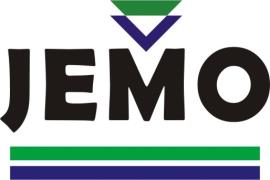 Add My Company
Add My Company
Sign In
PS... Britain's best kept secret
21-03-2012

{"What is the PS series? Why do we need them?" We were asked these questions when we held our first course in Hong Kong recently. We will give you some background to the PS Series, which has been adopted by pharmaceutical companies in the EU for supply chain risk management for many years.}
For over two decades a group of quality specialists have been creating world class standards designed to reduce the risk of pharmaceutical supply chain errors. Unfortunately few outside Europe have heard of them.In this article, Jeff Monk a member of the Pharmaceutical Quality Group (PQG) of the Chartered Quality Institute (CQI) describes the work of the Group lets you into the secret of the PS series of standards and other standards they have created. The latest of these PS 9000: 2011 was launched at the Royal Pharmaceutical Society HQ in London on 14th September 2011.
Practical Standards For Practical Applications
In both PS 9000 and PS 9100, the top levels of GMP equivalent to those in the EU GMP Guide and ICH Q7 are applied to all products. However, the approach can be adjusted according to the supplier and the material or components that are being produced eg. Secondary packaging or a printed label does not have to be approached in the same way as a primary packaging component which may be subject to sterilisation. "This is the distinct advantage of the PS 9000 series and professionally conducted audits against them" comments Jeff. "Before the application standards, the pharmaceutical customer auditors tried to apply the same standards to suppliers with very mixed results. This is still happening in Asia."
Suppliers And Customers Working Together
One reasons for the formation of the PQG was to provide standards which would apply the appropriate level of good manufacturing practice (GMP) to the manufacture and supply of materials and components consumed by pharmaceutical companies. Originally focused on packaging, printed components and raw materials, its publications now include a standard for excipients, guidance on supply chain risk assessment and, in association with the International Pharmaceutical Excipients Council (IPEC), a guide for auditing excipient manufacturers. The PQG has strong links with several major international bodies including the International Standards Organisation (ISO) and the World Health Organisation (WHO). Its publications and work are endorsed and supported by the MHRA, the UK medicines regulator.
With the involvement of senior quality practitioners from most of the global pharmaceutical manufacturers and people from a diverse range of suppliers, the PQG standards are the result of both sides of the supply chain working together with mutually beneficial objectives. Manufacturers need supply assurance and the suppliers need to implement levels of GMP which are appropriate to their products. The result is standards acceptable to both.
For more information on PS... Britain's best kept secret talk to JEMO Ltd
Enquire Now
List your company on FindTheNeedle.

